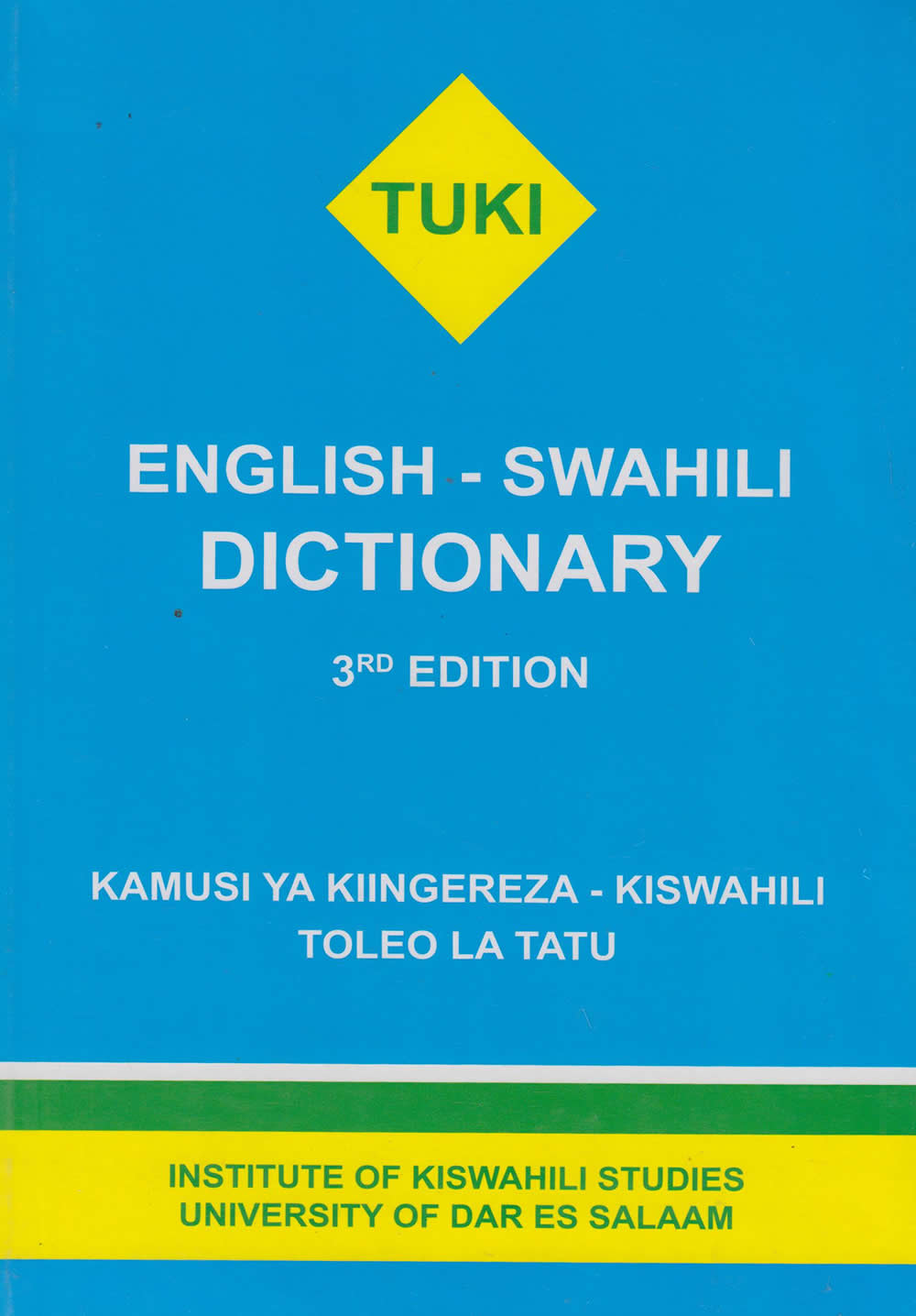Tuki English-Swahili Dictionary
KShs2,900.00
by The Institute of Kiswahili Research (Author), Institute of Kiswahili Research (Editor)
TUKI English – Swahili Dictionary is the most up to date dictionary of current English. It is published after more than a century since Madan published the first English – Swahili Dictionary in 1894, and half a century since Johnson (1939) was published. Johnson (1939) English – Swahili Dictionary, hitherto the most elaborate and authoritative dictionary, was compiled with the objective of helping the user to comprehend English texts. With the changing needs of a dictionary user, a new dictionary was necessary for two reasons : (1) to record new words and new meanings of words which the language acquired during the last 55 years, and (2) to provide some lexicographical information that current dictionary users need.
TUKI English-Swahili Dictionary was written with this background. It’s vocabulary covers a wide range of lexicon that includes both the general language and specialized language. It has more than 50,000 entries, some of which are technical words. It should however be emphasized that technical words which have been entered in this dictionary are only those which appear in the general language although they still belong to the specialized fields.
English as a world language is not always used the same way throughout the English world. It has some variations in form and meaning of words which are specific to one region or country. The language has also some words that suggest a particular style, attitude or level of formality. It has words which have been borrowed from other languages in recent years. This dictionary provides adequate information about some of these aspects so as to alert the user on when and where a word can or cannot be used and the connotation it may have to the audience.
This dictionary is both a decoding and an encoding dictionary. Efforts have been made to give every English word an equivalent word in Swahili and where no one word equivalent is found a phrase is provided. A headword which acquires meaning only when it is in a context, is put in a context first and then defined. For example:
con1 adv. pro and con pande zote
(hasi na chanya)
As an encoding dictionary, it provides some hints on word formation and syntax. Derivatives and compounds of a headword have been explicitly shown in the entry so that the user can see how words which share a common root are formed and how the morphological changes take place during the derivation process. Words which cooccur with the headword have been illustrated in an example phrase or sentence, or by showing the obligatory and optional elements which the headword takes, e.g. prepositional phrase.
Pronunciation an important aspect in language learning especially the spoken language, has been omitted in this edition for technical reasons. We hope the readers will bear with us and tolerate the unavoidable omission.
The dictionary has drawn heavily on the following works for which special acknowledgement is made: A Standard English-Swahili Dictionary (1996), A Standard Swahili Swahili-English Dictionary (1995), Oxford Advanced Learner’s Dictionary of Current English (1980); among others.
ISBN: 978-9976911299











Reviews
There are no reviews yet.